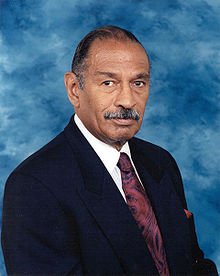Ahead of Hearing, CBC Sends Letter to Senate Judiciary Committee Strongly Opposing Dreiband Nomination
Style Magazine Newswire | 9/6/2017, 10:47 a.m.
WASHINGTON – Today, the Chairman of the 49-member Congressional Black Caucus (CBC), Congressman Cedric L. Richmond (D-La.), and the co-chairs of the CBC Task Force on Civil and Voting Rights, Congressman John Conyers, Jr. (D-Mich.) and Congresswoman Terri Sewell (D-Ala.), made public a letter sent to the Senate Judiciary Committee strongly opposing the nomination of Eric Dreiband to lead the Civil Rights Division at the Department of Justice.
In addition to lacking experience in several key civil rights areas important to communities of color (e.g. hate crimes, voting rights and police accountability), Dreiband has spent his career fighting against protections from various forms of employment discrimination. In 2007, he testified against bipartisan legislation to prevent long-term pay discrimination against women. In 2010, he testified before Congress against legislation to strengthen protections for millions of older Americans facing age discrimination in the workplace.
The letter is attached. Excerpts from the letter are below.
“Mr. Dreiband’s appointment follows President Trump’s agenda of tapping the fox to guard the henhouse.”
“At best, he has no known experience in the Division’s core issue areas, such as voting rights and hate crimes. At worst, he has devoted the vast majority of his career defending corporations accused of employment discrimination. Mr. Dreiband not only sought to limit the civil rights and remedies of Americans in the courtroom, but has also fought efforts in Congress to strengthen civil rights protections.”
“…Mr. Dreiband testified before Congress against bipartisan legislation to prevent long-term pay discrimination against women. Mr. Dreiband also testified against legislation to strengthen protections for millions of older Americans facing age discrimination in the workplace. Additionally, Mr. Dreiband has a long history of opposing efforts to ‘ban the box,’ a national campaign to remove the barriers to employment for people with arrest or conviction histories by delaying inquiry into the conviction history of job applicants. Each of these positions negatively impact the communities we represent…”




